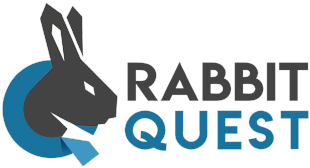Vitality and employee retention: How focused health programs can reduce turnover and boost morale
A company's most valuable asset is its workforce, and retaining top talent is essential for success. Focused health programs can play a pivotal role in reducing employee turnover and boosting morale. Let's explore the connection between vitality, employee retention, and the impact of well-designed health programs on your organization.
Time to read: 5 minutes
Improved job satisfaction
Employees who feel their well-being is a priority for the company tend to have a higher degree of job satisfaction. This sentiment arises from more than just the availability of health programs; it's also about the company's genuine commitment to employee welfare. Regularly updating and refining these programs based on employee feedback can further emphasize the organization's dedication. Moreover, when employees see clear results from these initiatives, such as improved physical or mental health, they feel a stronger connection to their workplace. This leads to a deeper sense of loyalty, as they recognize that the organization plays a vital role in their personal and professional lives.
Enhanced productivity
The link between good health and productivity is undeniable. Comprehensive health programs can lead to substantial improvements in various facets of an employee's life. By targeting specific areas, such as sleep habits, nutrition, or physical fitness, employees can experience boosted energy, better concentration, and a more positive outlook. Furthermore, when employees notice these tangible improvements in their day-to-day work performance, it creates a positive feedback loop. They become more inclined to participate in health programs, knowing the direct benefits they can experience. This uplift in morale and energy not only amplifies individual output but also creates a ripple effect, elevating the overall work atmosphere.
Reduced stress and burnout
In today's fast-paced work environment, stress and burnout have become pressing concerns. Well-structured health programs that provide tools and resources for mental resilience and stress management can be game-changers. Regular workshops on mindfulness, meditation sessions, or even offering occasional mental health days can make a significant difference. Employees equipped with strategies to handle high-pressure situations and challenging workloads are less prone to long-term burnout. Additionally, when they know they have the backing of their employers and access to resources, it can mitigate feelings of overwhelm and help them navigate tough periods more effectively.
Stronger team dynamics
Promoting health and vitaliteit in the workplace doesn't just benefit individuals; it has a profound effect on teams as a whole. Initiatives that encourage teamwork, such as group fitness challenges or team-building activities centered around vitaliteit, can foster better communication and collaboration among employees. Sharing vitaliteit journeys, milestones, or even the occasional setbacks can make coworkers more empathetic and understanding towards each other. This shared experience can break down barriers, helping employees feel more connected on both professional and personal levels. Moreover, as teams bond over these shared experiences, there's a noticeable uplift in mutual support, leading to a more harmonious and collaborative work environment.
Attractive workplace culture
An organization that actively promotes health and well-being sends a powerful message about its values, not just to its current employees but to potential hires as well. In an increasingly competitive job market, vitaliteit initiatives can set a company apart. Prospective employees often look for workplaces that provide a holistic experience, balancing job responsibilities with well-being. When a company offers extensive health programs, it signals a forward-thinking and caring work culture. Additionally, current employees become brand ambassadors, sharing their positive experiences with peers outside the company. This word-of-mouth endorsement can significantly enhance the organization's reputation as an employer of choice.
Employee empowerment
Empowerment in the context of workplace vitaliteit goes beyond just providing resources. It's about giving employees the autonomy to make decisions regarding their health, guiding them, but also trusting them to know what's best for themselves. When employees feel in control of their well-being, it translates into a greater sense of ownership over their roles in the organization. This empowerment can manifest in various ways - from choosing flexible working hours to maintain a better work-life balance, to seeking out training and workshops that align with their personal vitaliteit goals. As employees start to see the tangible benefits of their choices, their confidence grows. This newfound self-assuredness then extends to their job roles, leading to more proactive decision-making and a greater sense of job satisfaction.
Prioritizing employee well-being through focused health programs isn't merely a workplace trend; it's a strategic investment. By addressing the holistic needs of the workforce, organizations not only enhance individual health but also foster a collaborative, resilient, and committed team. The dividends of this investment, from increased retention to boosted morale, position the company for long-term success.




